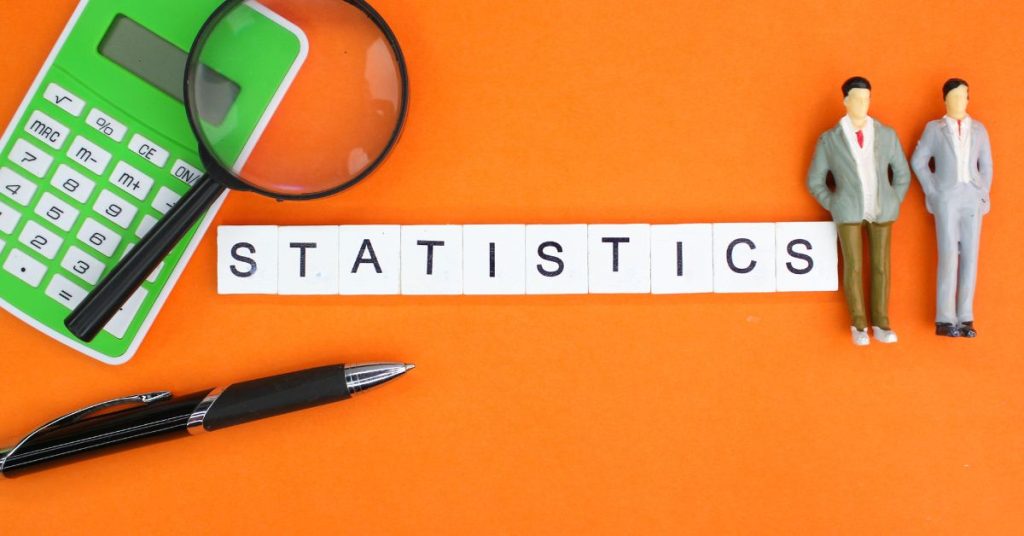Decision-making in any business enterprise needs statistics. It helps businesses stay organized and project into the future while avoiding quagmire in the present. The importance of statistics in business is never an over-flogged topic. As a matter of fact, you need statistics to manage your business’s internal and external factors. Internal factors are measuring and keeping stock, your employee talent acquisition and retention, budgeting, finance, and accounting, when to offer promotions, and others. External factors, you must consider competitors, product reviews, customers, regulatory framework, and compliance, alongside market factors.
Below is a detailed guide on the importance of statistics in business.
What is Statistics in Business?
Business Statistics is defined as a system of collecting, analyzing, grouping, and interpreting data from various sources relating to your business. The bulk yet important aspect of statistics in business is how to draw conclusions from data to make informed decisions.
Edureka says that the data can come from sources such as surveys conducted by you, market experiments, or other data collection centers. While data may be available in an array for businesses, different techniques and principles of statistics are used to gain insights into what those statistics say.
A business can avoid costly mistakes by taking statistics in business very seriously. For example, in the Event Industry, your event planning and trade shows or exhibitions depend on your marketing, the amount of awareness you have created, the rave your previous events generated, and what feedback was provided by attendees and exhibitionists at those events. And not to forget partnership and sponsorship. Having those statistics available could help you re-strategize or change the dynamics for your upcoming events. And same goes for other businesses.
Purpose of Statistics in Business
According to ManagementNotes, there are three purposes for which statistics in business are used. They are;
- Operational Planning:
This is a clear roadmap where a business comes up with a strategy and KPIs (Key Performance Indicators) to help team members gain traction on a given project. Operational Planning is carried out for a specific project or used as a blueprint for executing future projects.
- Setting Standards:
Another major purpose of statistics in business is that it is used for the critical measures put in place so that the same standard is maintained across the board, whether in the production of goods or service delivery, output, sales volume, packaging, size of the team, and employing new staff.
- Control:
Statistics in business serve as a control measure to ensure mistakes are avoided or not repeated, and the business does not regress in its mission statement.
The Importance of Statistics in Business – 5 keynotes
Statistics in business are important because they can help predict the future of a business and how to stay ahead of your competition. It can be used to predict sales volume and check if a business venture is attainable.
-
Making Informed Decisions
The availability of statistics in business helps to make better decisions as stated by Shiksha. They stressed that the collection and analysis of data show trends and specific patterns that guide businesses to make more confident decisions. This principle applies whether you are launching a new product or you exit one.
-
Identifying Business Opportunities
Smart and future-looking business owners can spot business opportunities by examining statistics in their business operations. R-Bloggers says the importance of statistics in business is that it helps you find new markets for your product, increase sales, retain customers, and project where opportunities will arise so that you can use the data to tap into those areas. Here is how to present data effectively.
Statistics in business is a good source of business continuity and erasing duplicated processes to ensure product efficiency and service delivery.
-
Understanding Customer Behaviors
Statology asserts the adoption of descriptive statistics in your business is one of the importance of statistics in business. It enables you to understand your customer’s behaviors, the pattern they adopt in buying your product, and generate feedback on how they use your product or service. That will help you gauge the utility of your product or service to them and whether they are willing to patronize your business again.
Statistics in business will determine when you should run promotions in your business and at what period it would be effective in giving out coupons or running discounts to your loyalists.
Studies also show that statistics are used for development and product improvement when data shows where further research is needed.
-
Identify your Target Market
Another importance of statistics in business is that it provides an avenue for determining your target market and whether your product or service is such as would be patronized by them. Their behavior in the past may be reflected in the data you study, and that would give you a clear path on what to expect from them and how to construct your output to meet their needs.
Determination of your target market through statistical analysis will help you measure the profitability of your business venture and plan the success of your company.
-
Product or Service Evaluation
When you try to understand the importance of statistics in business through how your customers use your product or service, is an avenue to take steps to shape how much you want your company to succeed.
Statistical data helps you to shape your product based on how your customers use or appreciate it. When you focus on the features best appreciated by your target customers, you are guaranteed an increase in sales and referrals.
At People Connect, we try to shape the events we promote on our platform. We understand that our customers are always looking to attend corporate events and see the best professional speakers at any event they attend, be it a virtual event or an in-person event, and the statistics we gather from them help us in our service delivery. And that can help you as well as an event manager.
How is Statistics Used in Business?
After explaining the importance of statistics in business, it is pertinent to state examples of practical ways statistics are used in business. They are:
1. Consumer Survey:
The importance of statistics in business and its use can be appreciated by the sentiments consumers have about your product or service. It also helps to gauge the demands of your product or service in a given geographical area. Take, for example, the Event Industry, if your attendees keep coming back and referring your upcoming events to their friends, it means you are doing the right things. And that is how the statistic is used in business, through consumer surveys of your service offering. Statistical data from consumer surveys can be narrowed down to age, demography, interest, etc, to gain better insight.
2. Hiring and Human Resources:
Statistics can help in your hiring process. When you desire to fill a vacant position in your organization, and you struggle to know how to recruit the best hands and the perfect salary package for the role, you can use statistics to assess what the average salary is online and what key competencies you should look out for as a human resource personnel when hiring. Paying the industry average salary or above is a great way to motivate your staff and retain them long-term.
3. Online Business:
When we consider the importance of statistics in business and how it is used, then Online Businesses such as E-commerce websites are major beneficiaries. If you own an online business, you must concern yourself with your Conversion rate. No matter how many visitors you get to your online business or website, if you do not get your visitors (potential customers) to “Click” to purchase your product or take a desired step for your business growth, their visit will not add profit to your business. To fully benefit from statistics, you have to monitor what visitors do on your website and how you can make them perform something different from what they currently do – say from reading your blog post to adding one of your products to their carts and paying for the product. You can adopt A/B Testing for better results as stated by JDM Consulting.
4. Event Venues:
Statistics can be used when you source event venues. Say you already know how many people have bought tickets to attend your conference; sourcing venues should not be an uphill task. Consider the number of tickets sold, potential attendees that have shown interest, and the numbers you project for the event – to check around for venues with capacity that will sufficiently cater for your event and within budget. Here are event pricing venues in Texas for your upcoming events.
5. Sales:
While your competitors may grapple with sales, you can use statistics to determine when to enter into a market, the favorability of your price, and the demand for your product by the consumer. You can use statistics to determine turnover in business, either on a daily, weekly, monthly, quarterly, or yearly basis.
Conclusion
Statistics have shaped how businesses operate in modern times, and the importance of statistics in business is comprehensive, as it helps firms know how their business is performing and how to analyze both internal and external data and manipulate it to their business advantage. This article also discussed how you can use statistics effectively in your business to stand out and ahead of your competitors.




